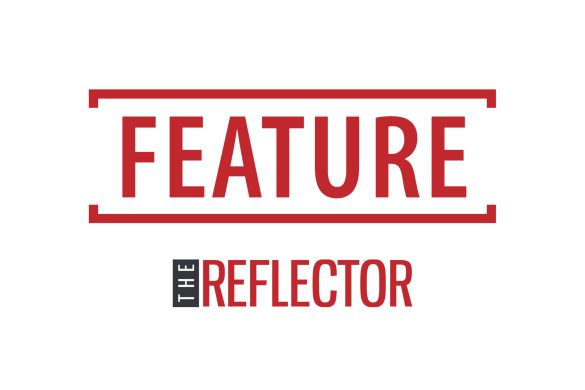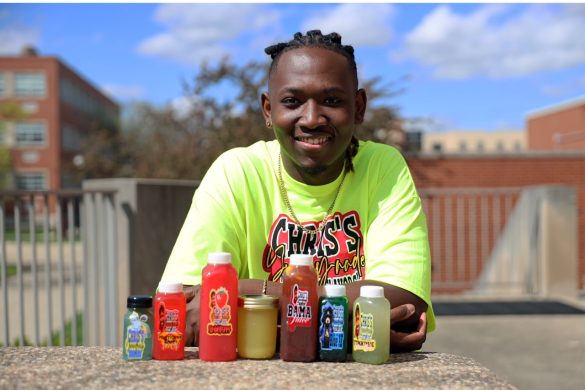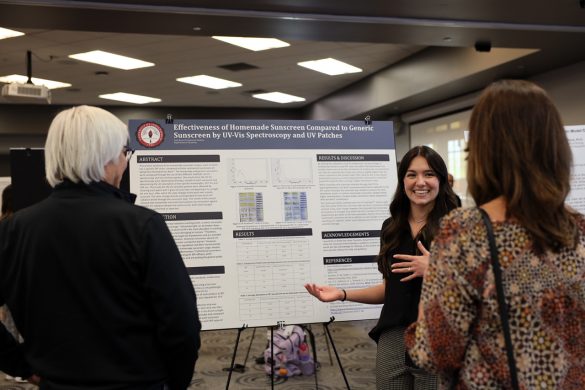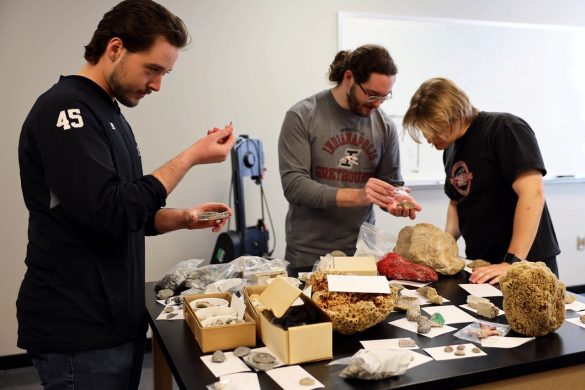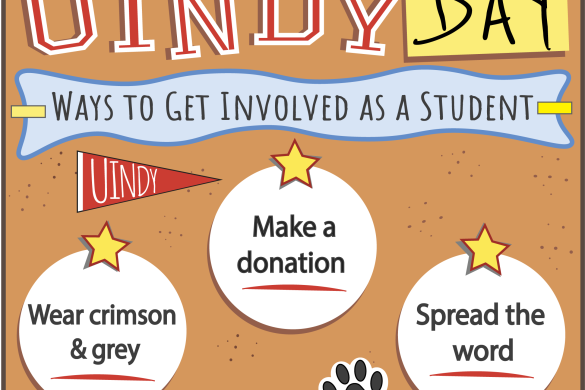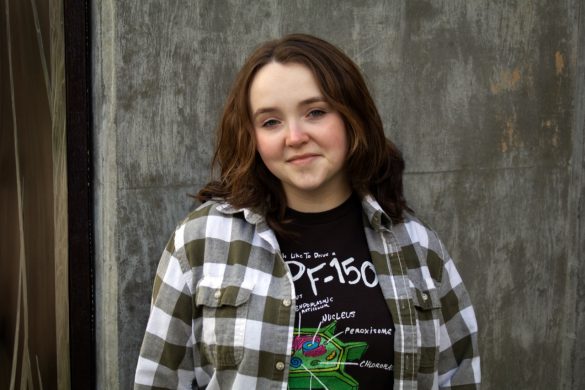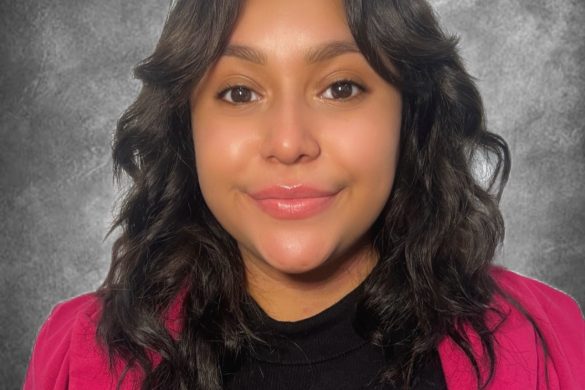Once a week, Assistant Professor of English Kip Robisch and senior creative writing and literary studies double major Jimmy Nelligan meet at the Perk in the library to discuss Nelligan’s independent study project. After spending around 10 weeks on research and reading “Moby Dick” twice, Nelligan is almost ready to write his final paper on “Moby Dick.”
Nelligan originally considered focusing on ecocriticism, but after reading “Moby Dick” again, noticing the varying points of view, reading other scholars’ books and discussing it with Robisch, he decided to conduct his own analysis of the piece.
Robisch said he acts more as a facilitator for the project, helping steer Nelligan toward books that would further his research. Robisch has done five independent studies at UIndy and said that the change of direction is one of his favorite parts of working on an independent study.
“As we worked together, as we started picking the novel apart, Jimmy [Nelligan] found this as the thing that he was interested in,” Robisch said. “And I think that’s one of the real values to an independent study is when you get to dig into something one-to-one…A lot of what’s happening is being generated by the student doing the study, which is great for graduate work.”
At the same time Robisch and Nelligan were planning their “Moby Dick” independent study, Professor of Sociology and Co-Director of the Community Research Center Jim Pennell and master of arts in applied sociology Matt Byrd were finishing up an independent study with the Marion County Commission on Youth.
Pennell was approached by MCCOY, which was looking for someone to do an evaluation of its programming to help support getting refunded.
“I hadn’t really had sort of a direct research experience either through my first major or through sociology,” Byrd said. “I thought it would be really interesting to see how non-profits function and it also coincided with a nonprofit class for the applied program I was taking, so it just seemed like a natural fit.”
Byrd worked from January 2017 to July 2017, going through information from past evaluations, looking up statistics and interviewing members of the Early Intervention and Prevention Coalition. He was also able to interview some of the department heads, including the lobbyist and the president of MCCOY.
“He was able to relay some things that I had overlooked,” Byrd said. “I was actually able to interview him at the end, so it was an interesting reflection on everything that I had done. I learned a lot generally about non-profits, from the members as well, about the politics of it all, understanding how superintendents like to think of their students within the process of governments…”
Byrd put his findings into a final strategic plan that was presented to the EIPC council and stakeholders in July. Throughout the process, he checked in with Pennell, who helped encourage communication and interceded if an issue arose.
“Unfortunately, the outside researcher of the process wasn’t able to make her visit to Indianapolis, so I didn’t have that direct experience, so it was helpful just being able to tell him [Pennell], ‘Well, there might be a setback,’ or ‘It might be a little different than originally expected,” Byrd said. “He sort of understood the minutiae of working in a non-profit, so that was helpful.”
Pennell said that independent studies give students real world experience and opportunities to discern what they like and do not like about a field of study or potential career.
“Why these experiences are important is that they rarely reflect the ideal situation,” Pennell said. “I think it’s important for students to have the opportunity to do these kinds of things to realize there’s the ideal…This is the way you want to do the evaluation, this is the way you want to do research, but then the reality is that there are also other kinds of pressures that come into play, and I think it’s important for students to realize that.”
The freedom to study subjects that he is interested in is Nelligan’s favorite part of doing an independent study. Nelligan and Robisch agree that coming into a one-on-one project with curiosity and an interest in a topic makes the process easier and more enjoyable for the student and professor involved.
“This is the first time I’ve really been able to go off and do something that I’ve wanted to do,” Nelligan said. “I feel like in a lot of classes, you get that ‘oh, that’s a really neat thing you could write 20 pages on if you wanted to,’ and this is the opportunity to actually do that.”
